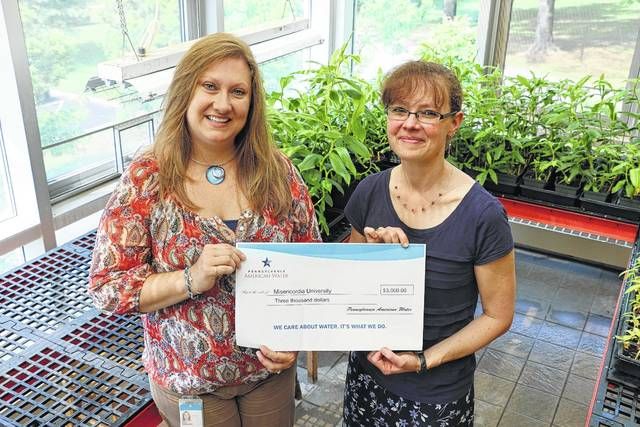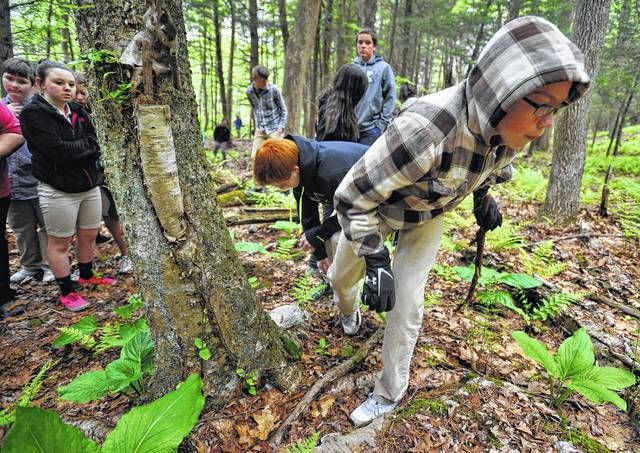Click here to subscribe today or Login.
DALLAS TWP. — Coming soon, amid the towering old-growth trees, blue heron rookeries and elusive gray foxes: High-tech gizmos monitoring environmental conditions, relaying the information to Misericordia University.
The university biology department has nabbed grant money from Pennsylvania American Water to set up an educational partnership with Chris Miller, president of the 17-acre Lehman Sanctuary.
The grant provides $3,000 to purchase and install advanced telemetry equipment that will monitor water and soil conditions. Misericordia faculty and students will have remote access to the data.
Miller, who lives along Jackson Road at the edge of the sanctuary, said the project evolved following multiple conversations with Misericordia Associate Biology Professor Cosima Wiese.
Along with letting the biology department at Misericordia monitor multiple factors at the sanctuary and analyze the data, the project will let visitors at the sanctuary see the value of remote telemetry in tracking environmental conditions.
Miller said Rugged Telemetry will make “sensors in a set of boxes” to specifications worked out with Wiese. He expects the equipment to be installed in time for use by faculty and students when school starts at Misericordia this fall.
Miller’s family owns the land, and he has welcomed visiting students from area schools for more than a decade. In 2015 the sanctuary acquired nonprofit status from the state and launched a website.
The sanctuary quickly won its first grant, $7,900 from Pennsylvania American Water, that helped pay for an indoor field station on the meadow that serves as gateway to the forested part of the sanctuary.
Getting the telemetry equipment, and the university to analyze the data, is a valuable addition because his years providing tours of the property have convinced him “that water is such an important teaching moment for students.
“The vernal pools and the spring seeps here house rare amphibians,” Miller said, and those amphibians are sensitive to the condition of the water and soil. “Salamanders are great bio indicators.”
The monitors can be teaching tools while making efforts to preserve the land, and it’s rich diversity of flora and fauna, scientifically informed.
“I’m very, very excited about it,” Miller said.






